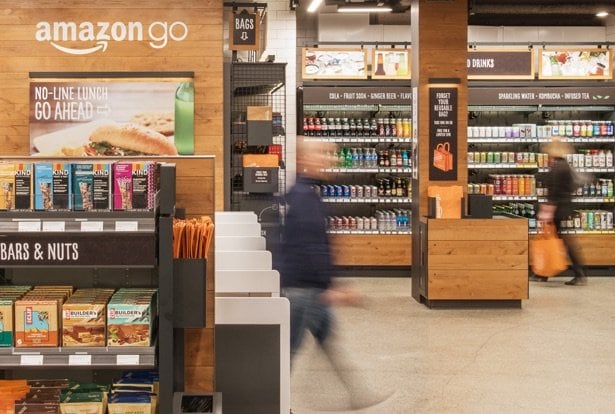This obsession with protein content in modern food marketing is giving me pause (and, oddly, no extra muscle mass as I contemplate it on my couch), as the number of Americans who are actually protein deficient is very, very small. Think about that.
The disconnect between fact and assumption on that point is fairly amazing. How did it get that way? I have a theory: The beef and dairy industries are pretty big and make a lot of money. They sell delivery systems for protein. It also turns out that they are real good at marketing. Just look at the results: In a market where almost no one is protein deficient, lots of people (customers) think they are in danger of becoming so… that’s pretty effective marketing.
According to Healthline.com, “True protein deficiency is uncommon in the Western world.” However, they also point out that, “An estimated one billion people worldwide suffer from inadequate protein intake,” and add that, “Certain people in developed countries are also at risk.”
How much protein do we need?
The US Recommended Daily Allowance (USRDA) for adult men and women is 0.8 grams of protein for every 2 pounds of body weight. The RDA is usually reported as a single value, which makes it the easiest to use. The average RDA for women is 46 grams daily; men need 56 grams of protein daily.
I always assume they build in a little safety cushion too. And while I know it seems impossible, is there any chance that the beef and dairy industries may have exerted any influence over those calculations and the marketing of them?
Bruce Friedrich, co-founder and executive director of the Good Food Institute told me, “As Kathy Freston and I explain in our book Clean Protein, more than 97% of Americans are getting enough protein even as 97% of Americans are not getting enough fiber. We all know people who are suffering or have suffered from heart disease, cancer, obesity, diabetes – these are the Western diseases, and they are linked to our incredibly high-protein diet and the lack of fiber that we are consuming.”
Most Americans are short of fiber, not protein
Our friend Tara Collingwood, MS, RDN, CSSD, LD/N, ACSM-CPT is the Tem Dietitian for the Orlando Magic and Nutrition Consultant for UCF Athletics and USTA National Campus. Tara said, “I work with a lot of collegiate and professional athletes who have made great strides to reduce animal protein and I have yet to have one athlete have their performance or recovery suffer.”
Some leading protein bars contain around 20 grams of protein. A hamburger has around 25-30 grams of protein. According to livestrong.com, “Each cup of cooked soybeans offers 29 g protein… White beans and lentils contain about 19 g protein per cup, providing many essential amino acids such as isoleucine and lysine. Black beans contain 15.2 g per cup, while kidney, lima, black-eyed, navy and pinto beans contain about 14 g per cup.” It just doesn’t seem that hard to get the necessary amount of protein (if you live in America).
And you can never get too much of a good thing, right? Well, it turns out that is true for scotch, but not necessarily protein.
Too much of a good thing?
The Mayo Clinic points out that “some high-protein diets include foods such as red meat and full-fat dairy products, which may increase your risk of heart disease. A high-protein diet may worsen kidney function in people with kidney disease because your body may have trouble eliminating all the waste products of protein metabolism.”
According to Healthline.com, “Excess protein in the body is related to several health concerns, especially if you follow a high-protein diet for an extended period.” The list may include: Weight gain, bad breath, constipation, diarrhea, dehydration, kidney damage, cancer, heart disease, and calcium loss. Wait. Back up. Bad breath? Okay, it is clearly time to get serious about the correct protein consumption.
According to the World Cancer Research Fund colorectal cancer is the second most common cancer among women and it’s third for men. Lung cancer is number one.
So let’s recap for a moment: What is supposed to be consumed by carnivores whose small intestines are typically four or five times the length of the trunks of their bodies and gets eliminated from their systems whereas it starts to decay inside the systems of animals constructed by nature to eat primarily plant food (whose small intestines are ten or twelve times the length of the trunks of their bodies)? Hint: it ain’t mangoes.
The World Cancer Research Fund states that, “There was strong evidence that consuming processed meat, red meat and alcoholic drinks… increase the risk of colorectal cancer.”
Plant based pioneers take note
In the 1980s, Wendy’s ran a series of now-famous, Where’s the beef? commercials. Assuming that you do NOT remember them, please keep reading this article. She was cute. That meager-looking little, old lady would bark, 'Where’s the beef?!' and America found that to be hysterical. After all, we needed more beef. More! In the richest nation in the world we now have around 40% of our population living below the poverty line. Yet, in impoverished neighborhoods the one thing you can always find enough of is fast-food burger joints. It’s universally American to sell protein.
Now don’t get me wrong. I am not saying that protein is bad, of course. I’m just suggesting that we calm down with counting grams on packages and remember that diversity is the spice of life. I also think that perhaps we should provide more protein where it is actually needed, which might be in places like Liberia, but probably not LA.
The plant-based community, our beloved pioneers of better nutrition and social benefits… They seem to be talking a lot about protein these days. Protein derived from mung beans won’t decay inside your alimentary canal. And humans need protein. No doubt. Still, why are they talking so much about protein to Americans? Have they stolen a page from the meat marketer’s playbook? Plant-Based Pioneers (PBP’s) I beseech you, don’t become the Bill Belichicks of food.
Don’t devolve into nothing more than PP’s (Protein Pioneers).
I guess what I’m saying, PBP’s, is please don’t co-opt the marketing spin of the monolithic leaders of the legacy food system. Be yourselves. Give us some whole foods, with simple, clean labels, and maybe that’s good enough. After all, you are killing it. Have you seen the stats lately? Those old food brands packed with things like potassium sorbate and high fructose corn syrup are shriveling up faster than old avocados at my health food store. You are winning! We are.
And if you want to be PPs, then put the P back in PP. (Too much? Well, the first P is for protein. The second one was for “Pioneers.” Remember?) Anyway, almost no one here in America has a problem getting protein. I never said that’s the case elsewhere in the world. There are countless places in the developing world, in Africa and the Middle East and Southeast Asia for instance, where they could use a bit more P. If we keep trying to produce it by growing (and then murdering) cows and chickens—wasting all that water and grain and generating all of that methane—well, you know the line... things get dicey in 2050.
So I want to thank anyone producing plant-based protein, in advance, if you would please do a little more to market it as part of a greater whole, and also focus some effort on supplying it to parts of the world where they could really use some help. In conclusion, in the words of Albert Einstein, 'A ship is always safe at shore, but that’s not what it’s built for.'
Have a great 2019.

Stu Strumwasser - who became a vegetarian aged 14 - is founder and managing director at Green Circle Capital Advisors, a boutique investment bank that provides advisory services in raising capital and mergers and acquisitions for middle market natural products and food tech companies. Its client companies are typically in the natural food, beverage or VMS/nutraceuticals space, or offer tech-enabled services applied to food tech or other areas of health and wellness.
For an extended version of the article, inclusive of Stu's personal evolution as a vegetarian, visit: www.greencirclecap.com/protein




